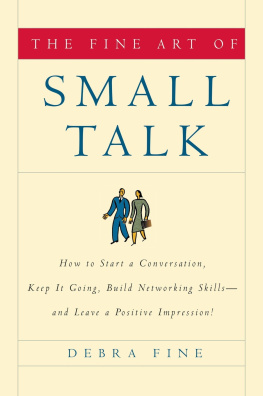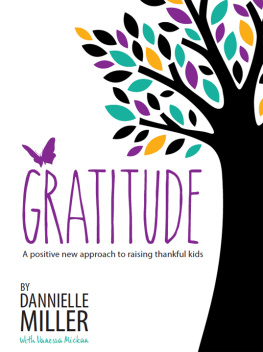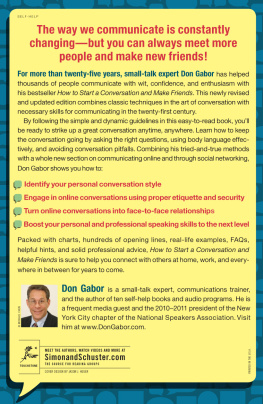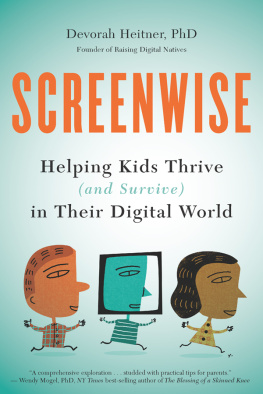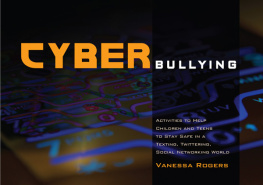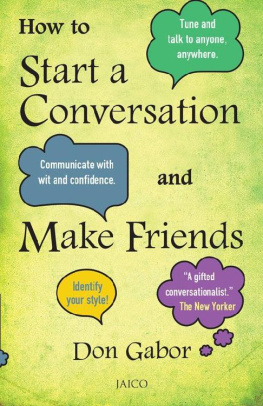

HOW TO GIVE CHILDREN
THE SKILLS THEY NEED
TO THRIVE IN
THE MODERN WORLD
FAYE DE MUYSHONDT

RUNNING PRESS
PHILADELPHIA LONDON
2013 by Faye de Muyshondt
Published by Running Press,
A Member of the Perseus Books Group
All rights reserved under the Pan-American and International Copyright Conventions
This book may not be reproduced in whole or in part, in any form or by any means, electronic or mechanical, including photocopying, recording, or by any information storage and retrieval system now known or hereafter invented, without written permission from the publisher.
Books published by Running Press are available at special discounts for bulk purchases in the United States by corporations, institutions, and other organizations. For more information, please contact the Special Markets Department at the Perseus Books Group,
2300 Chestnut Street, Suite 200, Philadelphia, PA 19103,
or call (800) 810-4145, ext. 5000,
or e-mail .
Library of Congress Control Number: 2013932803
E-book ISBN 978-0-7624-4934-7
9 8 7 6 5 4 3 2 1
Digit on the right indicates the number of this printing
Cover and interior design by Bill Jones
Edited by Kristen Green Wiewora
Illustrations by Shaw Nielsen
Typography: Myriad and Officina Serif
Running Press Book Publishers
2300 Chestnut Street
Philadelphia, PA 19103-4371
Visit us on the web!
www.runningpress.com
This book is dedicated to my parents, Anne and Ed Rogaski, who instilled in me the many skills that I am now blessed to teach. I love you, Mom and Dad.
Table of Contents
Thank you to the many, many students Ive been fortunate to work with, who have given me so much joy and made my business world so fulfilling.
Thank you Jennifer Kasius, who believed in this book and made a dream come true.
Im so grateful to Monique Owens, my colleague, who helped me during long days at the office of brainstorming, writing, re-writing, editing, and helping decipher my random thoughts out loud into something that actually made sense on paper.
An enormous thanks to my spectacular editor, Kristen Green Wiewora who worked her magic on this book when it was desperately needed, who patiently held my hand as I embarked on this brand-new experience and who offered empathy as I worked through the drudgery of the editing process! Special thanks to August Tarrier and Victoria Fiengo.
And my very, very dear friend Chaz Ross who not only encouraged me to start socialsklz:-) some years ago, but who has been my confidant in everything since then.
Thank you Gillian Berman who has become that much more special as a friend because of this book.
Thank you Tom and Harland Dahl who listened and gave nuggets of wisdom throughout this journey!
Thank you my precious baby Adriana Elizabeth, at whom I gazed at in amazement as I wrote this book.
And thank you to the love of my life, Federico, who fuels me each day with the love, guidance, and support that I need to thrive in my modern world.
T he idea for teaching modern day social skills and eventually launching my business, socialsklz:-) tools to thrive in the modern world, came to me about six years ago. Id spent 15 years in public relations and marketing, building brands, garnering media attention, and managing reputations. As part of that work, I also offered media training for clients to get them ready for print interviews, national TV, and radio. In this training, wed thoroughly review verbal and non-verbal first impressions, including body language, speaking, intonation, responding to questions, appearance, and such. During those media training sessions Id often think of how valuable those lessons could be to anyone. But for many of us, these lessons were anything but a positive learning experience: what we got were critical comments from a family member, chiding us for our behavior.
In 2007, I began teaching at New York University in the Steinhardt School of Media, Culture, and Communications; in teaching PR 101, I was reminded of my media training sessions and realized that my students were in dire need of them. When they gave presentations, it was common to hear frequent use of like, um, and ya know, and they didnt seem to think it was a problem to be standing in front of the class with their midriffs showing. As part of their coursework, students would friend me on Facebook for a ten-day period to keep me abreast of the social media work they were doing for class, but when I logged in I was more likely to find various students salacious photos and racy status updates in my newsfeed.
Students would make a request by email without bothering to use a greeting, address me properly, or even close with a thank you. They spent class time staring at their computer screens, so it was nearly impossible for many to make eye contact during discussions, and the few who did seemed like anomalies. As the economy plummeted, those same students complained about how frustrating the job market was and how difficult it was to secure a job. Rather than mutter under my breath these kids today, I started to ponder the truly valuable skills, entirely outside of academics, that help to win a job interview, particularly when the competition is fierce. And while grades and, yes, perhaps a good school, are vitally important, I realized that that would only get their resume in the door for an interview. The real clincher would be excellent social interaction and communication skillsessentially, their social IQ.
With the rise of modern technology, its clear that face-to-face interaction seems less important to upcoming generations. More and more, young people are communicating via email, text, and even social media. However, its clearer than ever just how important social skills are, not only for an interview, but for life. Its what compelled me to develop a course for college students in which they learn essential social skills, appropriately titled The Brand Called You.
The course addresses topics such as first impressions, body language, conversational skills, grooming, the overuse of filler words (like, um, and ya know), greetings and introductions, appropriate attire for business and non-business encounters, technology dos and donts, respect for oneself and others, digital responsibility, showing and expressing gratitude, and the importance of taking ownership and pride in what one does. At the end of the class, the students give a 30-second elevator speech about themselvesin other words, a pitch deliverable in the time span of an elevator ride, a maximum of 30 seconds and 140 words, or in more modern terms, an elevator tweet.
Teaching The Brand Called You showed me how empowering these skills are for college students, and I quickly realized that we should be teaching social interaction and communication skills, like any other important subject, rather than assuming that those skills would be acquired passively through daily social interaction. For most people, good social skills arent an inherent character trait, but the good news is that, just like any other skill set, they can be mastered over time, if theyre taught, practiced, and implemented. I see this firsthand in the classroomand the younger the learner, the better.
Next page

